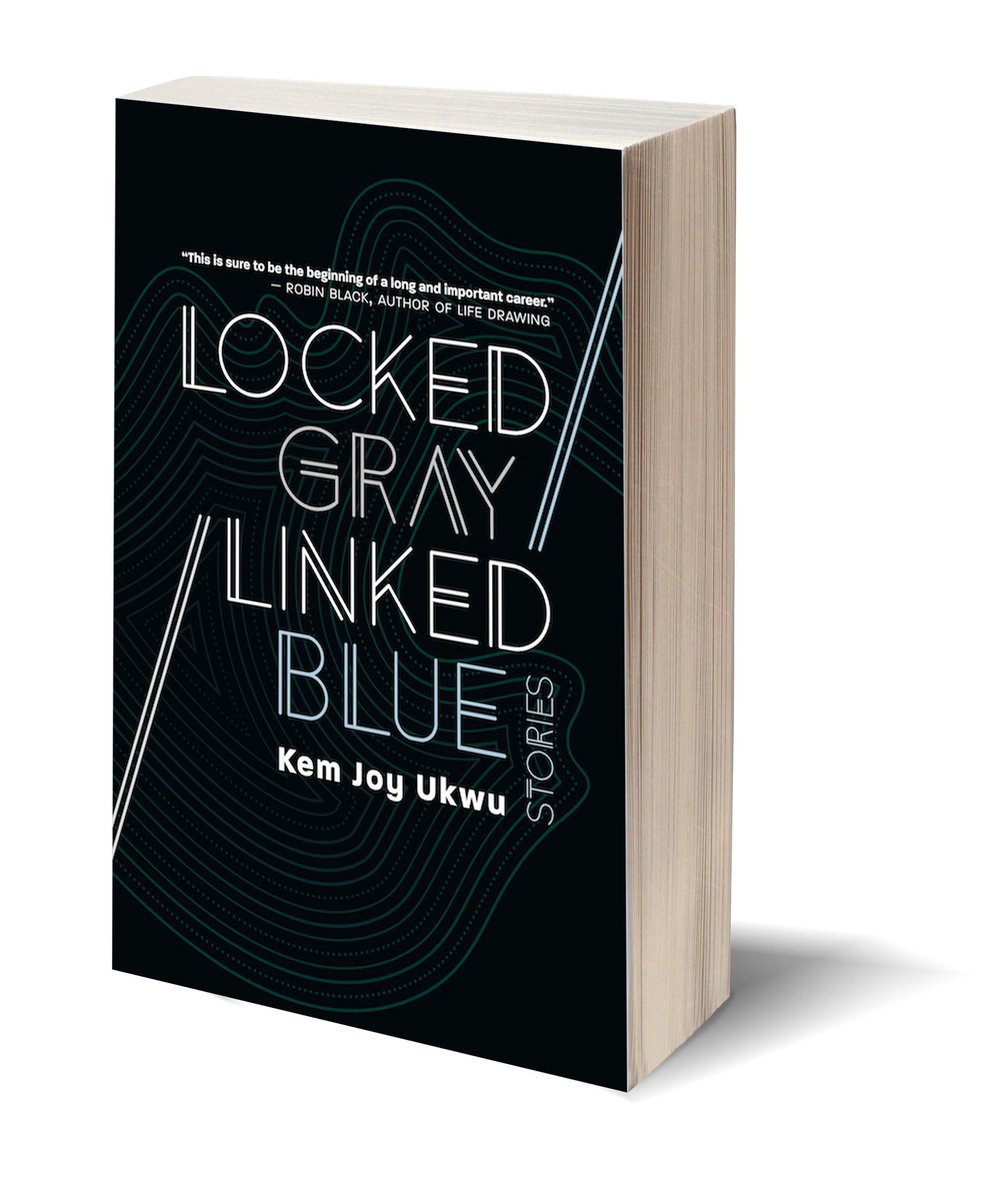Locked Gray/Linked BlueBy Kem Joy Ukwu
Kindred Books |
 |
|---|
Reviewed by Stewart Lindh
The United States is home to the largest community of Nigerians outside Nigeria itself, a country whose population is the largest in Africa—at 174 million, more than half that of the United States.And in the thirteen stories that make up Locked Gray / Linked Blue, Kem Joy Ukwu explores the lives of Nigerian-Americans, both younger, American-born women whose parents were foreign born, or the parents themselves, who are still memory-embedded in Nigeria.
In these stories, Ukwu's female characters confront archaic kinship patterns and patriarchy. They are wedged between the institution of being female and their own experiences of being women, trapped in a double-bind that banishes the ghosts of their Nigerian past (internalized within their parents) while they are attempting to define an identity in an America presently having its democratic institutions stripped away. Their hope is to find some meaningful core, when there may actually be nothing waiting. It's a process that involves heavy lifting for the self, heart, and soul.
Incredibly gifted at becoming "the other," Ukwu is able to move fluidly in and out of the fortress of pronouns. Some stories are told in the first person, others in the third. And a few take on and succeed at that most challenging perspective, the second person. Most writers who dare to try this fail. Yet Ukwu is able to slide "You" over you, to endow us, her readers, with immediacy far beyond the narrow scope of the "I." The opening of "Bars," for example, shows this clearly: "You look inside your blue backpack to ensure you have everything." As it is as the beginning of Kafka's The Metamorphosis, when Gregor Samsa awakens to find himself transformed into a giant insect, when you come to a sentence like this you either turn back or go over. With Ukwu's incredible skill at negativity capability, we follow her characters from within their perceptions without once looking back at the page through which she has brought us.
From the opening frame story until the collection's catharsis at the end, Locked Gray / Linked Blue takes us inside the dreams, fears, losses, and prolonged disappointments of older Nigerian American women whose only way of maintaining emotional equilibrium is to hold on to traditions that are disappearing. Their daughters, trying to break free from the undertow of Nigeria pulling them back, try to shake their parents from a nostalgia for an absent present.
The results can be harrowing, as it is in "Proposed," where a woman waits out years of unrequited love only to finally surrender to a man whose only asset is the fact that he can prevent her from being alone, or as it is in "Flight in Transit," where a young Nigerian boy who dreams of flying, travels by subway across New York City to visit his estranged father, only to see his hopes flutter away, like an Icarus without Daedalus.
Reading Locked Gray / Linked Blue, we experience the many ways people can haunt themselves with indecision. The sad dance of step-forward, step-back of Ukwu's characters evokes Jacques Lacan's remark: "Such awe seizes man when he seizes the lineaments of his power that he turns away from it in the very action employedto lay its features bare." It cannot go without saying that Lacan's quote itself, deferring to male-predicated grammar, exudes its own phallocracy, as if women, a priori, are excluded from power. In the case of Ukwu's characters, the challenge is doubled, for her young female characters must transcend a patriarchal culture of grandparents, parents, and suitors while they also have to confront an American society regressing into anachronistic patterns of racism and misogyny, a country moving farther away from being "indivisible, with liberty and justice for all."
Like the parlor game for building trust, in which one person falls backward, relying on others to catch her, Ukwu's extraordinary female characters fall forward intolife—following Augustine's injunction (even if they have never heard it): "Love and do as you will." For me, an old white male, I am in awe of the gift offered by this young black female writer, a gift I could never acquire anywhere else but within the pages of Locked Gray / Linked Blue, a gift more valuable than sympathy—priceless, in fact: empathy.
